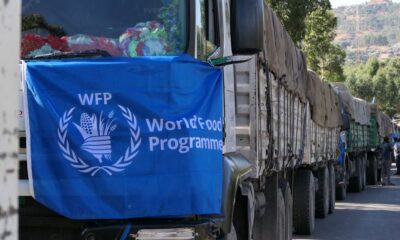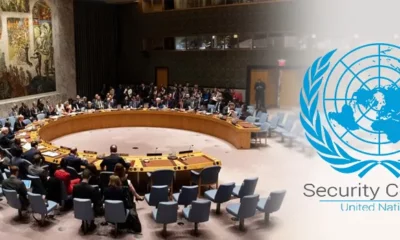United Nations aid chief, Martin Griffiths, has warned the Security Council that almost five million people in Sudan could suffer catastrophic hunger in parts of the war-torn country in the coming months.
Griffiths said acute levels of hunger were part of the impact of the conflict spanning disruptions to agricultural production, damage to major infrastructure and livelihoods, disruptions to trade flows, severe price increases, impediments to humanitarian access, and large-scale displacement.
“Without urgent humanitarian assistance and access to basic commodities … almost 5 million people could slip into catastrophic food insecurity in some parts of the country in the coming months,” Griffiths wrote.
Similarly, the World Food Programme (WFP) said on Tuesday that food assistance for hundreds of thousands of Sudanese refugees in Chad, some of whom are on the verge of starvation, may cease next month if more cash is not provided.
As security worsens and the lean season begins, some people may move into famine conditions in West and Central Darfur. Griffiths called cross-border aid delivery from Chad to Darfur a “critical lifeline.”
Griffiths estimates that nearly 730,000 Sudanese children suffer severe acute malnutrition, including over 240,000 in Darfur.
“An unprecedented surge in the treatment of severe wasting, the most lethal manifestation of malnutrition, is already being observed inaccessible areas,” Griffiths said.
War erupted in Sudan on April 15, 2023, between the Sudanese army and the paramilitary Rapid Support Forces (RSF). More than a million people have fled to neighbouring countries since the brutal conflict in Sudan started in April 2023. Among them are about 378,000 Sudanese refugees and about 48,000 Chadians who were forced to return to eastern Chad.
The U.N. estimates that nearly 25 million people – half Sudan’s population – are in need of aid, while 8 million have fled their homes. There have been war crimes committed by the warring parties, according to the U.S.
In accordance with a 2018 Security Council resolution, the UN secretary-general reports to the 15-member body when there is a “risk of conflict-induced famine and widespread food insecurity in armed conflict.”
Since the start of the war in Sudan, Griffiths said, more than 1,000 aid access incidents have been recorded that have “adversely impacted humanitarian operations.” He said 71% were due to conflict or intentional violence against humanitarian assets or aid workers.





































